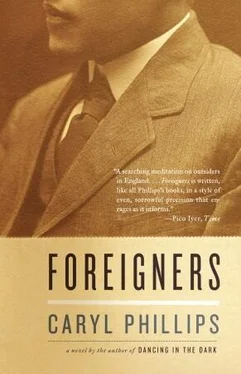On the warm summer's evening of 10 July, 1951, 18,000 people were packed into the Earls Court Exhibition Hall, with many hundreds more milling about in the car park outside. In homes throughout the length and breadth of the country, over twenty million people were tuned into the BBC Home Service to listen to Raymond Glendenning's live radio commentary, including King George VI who was sitting next to the wireless in Buckingham Palace. Inside Turpin's dressing room, the young boxer sat calmly on a bench immersed in a comic book, which was often his preferred reading matter. Never one to panic or become overly agitated before a bout, there was something almost resigned about Turpin's demeanour which worried his Manchester-based Irish trainer, Mick Gavin, his brothers Dick and Jackie, and his manager, George Middleton. Eventually Turpin was encouraged to put down his comic book so that his seconds could slip on his gloves and fasten them tightly into place, and then his threadbare dressing gown was slipped around his broad shoulders and everybody was ready. In keeping with tradition, the challenger would enter the arena first. Shortly before 9:30 p.m., George Middleton opened the door to the dressing room allowing the clamour and noise to greet them for the first time. As Turpin shuffled past Robinson's dressing room, he could hear noise and laughter from within. The American was clearly upbeat and confident of an easy payday and a swift return trip home.
These days fighters tend to enter the ring to loud, thumping music of their own choice, with laser beams cutting through the air and a razzle-dazzle of a performance that is more akin to the circus than a sporting event. On this particular July evening, the lights were dimmed and the spotlights picked out Turpin as he entered the arena to nothing more than loud cheers of encouragement from those who were able to strain their necks and get a glimpse of the lad from Leamington Spa. Some spectators stood on their seats as the British champion edged his way towards ringside, and then Turpin ducked through the ropes and stepped into the ring where finally he was visible to the sell-out crowd. They noisily and enthusiastically cheered the coloured lad, and then the champion appeared and he, in great contrast to the low-key entrance of Turpin, seemed to revel in his self-assigned role of showman. His hair was slick and straightened, with not a single lick out of place, and he flashed a broad smile for the cameras. As he moved towards the ring, draped in a white robe with a blue silk gown on top, he bobbed and weaved as though eager to let everybody know that he was ready for business. Behind him, like courtiers traipsing after a prince, were his attendants, all uniformly pristine in blue and white tops with the words 'Sugar Ray' emblazoned on their backs. Having climbed into the ring the champion bowed respectfully to all four sides of the arena, and then he turned to acknowledge the challenger who was visibly sweating in his corner. As the announcer began to declare that the feature contest of the evening was about to commence, Robinson made a display of not taking his stool, preferring instead to bounce ominously from foot to foot in his corner, and bang his gloves together as though eager to get the proceedings over and done with. The prince of the ring stared at his English opponent, who appeared to have dead man's eyes, and Sugar Ray wondered if the Limey was yellow. Turpin sat slumped on his stool as though awaiting his fate. From where he was sitting he could see the Movietone cameras already whirring with activity for, whatever the outcome, the newsreel of this fight would soon be broadcast in all the major picture houses in Britain. The referee, an ex-heavyweight from Scotland named Eugene Henderson, signalled to the fighters to ready themselves, and Turpin drew himself to his full height knowing that there was now no turning back.
A little over an hour, and fifteen gruelling rounds later, Turpin slipped an arm around the American's shoulders and escorted him back to his corner in a gesture of respect. The fight was over and the 18,000 voices in the Earls Court Exhibition Hall were raised as one, singing chorus after chorus of 'For He's a Jolly Good Fellow!'. The BBC's unashamedly patrician Raymond Glendenning, with his handlebar moustache and clipped received pronunciation, posed the rhetorical question to the whole nation. 'Who has won?' Those who were present at the fight had no doubt who had won, but Glendenning kept the whole nation, including the king, on tenterhooks. In the ring, Turpin congratulated Sugar Ray and his corner men, and a breathless champion patted his British opponent on the back muttering, 'Good fight. Good fight, kid.' Eugene Henderson saw that both fighters were in the American's corner and he knew that there was no need for him to consult his scorecard. He walked over and raised Turpin's hand, at which point Glendenning's words exploded across the beleaguered nation. 'Turpin has won! Turpin has won! Turpin, Randolph Turpin, twenty-three-year-old from Leamington Spa, is the new middleweight champion of the world!' George Middleton, Dick and Jackie Turpin, and Turpin's trainer, Mick Gavin, leapt across the ring and hugged the new world champion, while in the hall pandemonium broke out. The chorus of 'For He's a Jolly Good Fellow!' increased in volume as Robinson climbed his way out from the ring and shuffled in the direction of his dressing room, leaving Turpin to bask in the applause and cheers of the Earls Court crowd.
Once he reached his dressing room, the new world champion showered quietly and then got dressed. His brothers were clearly far more excited than he was, and they pressed him to tell them what Sugar Ray had said to him. Turpin thought for a moment and then said that Robinson had told him, 'You were good. Real good. Just like everybody had said you were.' Turpin knew that he had fought well, his seventy-four-inch reach keeping Robinson at bay, his wide stance allowing him to maintain his balance, and his upper body strength enabling him to bully the American in every clinch and inflict a wound over the American's left eye that would require fourteen stitches. In between rounds Turpin had remained calm and relaxed on his stool, his legs spread out before him and his elbows resting up on the ropes, but each time the bell rang he sprang to his feet and his superior conditioning and unorthodox crouching style eventually left Robinson battered and exhausted.
Randolph Turpin was now the undisputed 160 lb champion of the whole world, but he seemed temporarily bewildered, as though this title was not what he had been seeking, and the events of the evening had been a strange, unsolicited, consequence of simply doing what he enjoyed. As the Turpin group left Earls Court, they could hear those inside the Exhibition Hall still singing 'For He's a Jolly Good Fellow!'. Outside in the car park, and in all the streets leading to the Earls Court Tube station, there was cheering and joyous celebrations the like of which had not been seen or heard since VE Day some six years earlier. However, Turpin seemed untouched by all of the exuberance, and he simply smiled as though unable to comprehend whatever forces he had just released in the soul of the British nation. Meanwhile, a chastened Robinson, having had his stitches administered in the privacy of his own dressing room, sought to avoid the press by seeking out a nearby Earls Court bed and breakfast. In the morning he would leave quickly on the first boat train to Paris, from where he would fly home to New York City. He left instructions that his entourage should make their own way to France as soon as possible.
In the morning a practically unblemished Turpin awoke in his hotel room bright and early, and he decided to go out for a short stroll with George Middleton and try to walk off some of the stiffness in his muscles. The country had partied hard and long on the previous evening, but Turpin had avoided the limelight and got his head down for a good night's rest. This morning it was not so easy for the new champion to avoid the crowds, but Turpin and his manager, with the assistance of the hotel staff, managed to sneak out of a back door. Predictably enough, the British newspapers were full of reports of Turpin's almost unbelievable victory, and triumphant stories were blazoned across both the front and the back pages. In the United States, reporters were aghast, not only by the fact that Robinson had been defeated, but by the manner in which he had been so easily outboxed, outjabbed and outmuscled by, of all people, a Limey. The only possible explanation was that Sugar Ray's constant whirl of European social engagements, his nightclubbing, golf games, exhibitions for money, and constant travelling, had taken their toll on the great man. Surely there would be a rematch?
Читать дальше











![Unknown - [Carly Phillips] The Bachelor (The Chandler Brothe(Bookos.org) (1)](/books/174132/unknown-carly-phillips-the-bachelor-the-chandle-thumb.webp)
